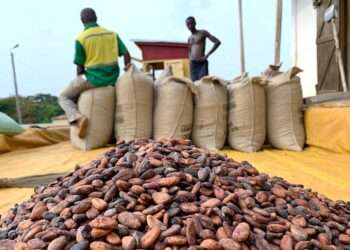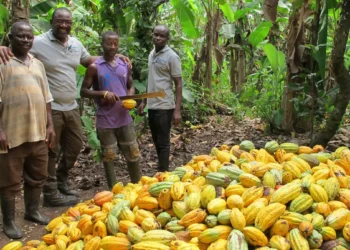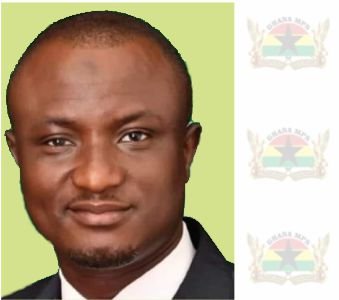The Financing Sustainable Community Forest Enterprises in Cameroon project, known as DRYAD, has empowered women to take up leadership positions in the community forest industry. The project which ran from 2015-2020 in 29 community forest now have women on executive committees. Almost half of those trained and employed in the enterprise are women.
DRYAD’s priority was to empower women to actively participate and make decisions in vulnerable community groups. The project was an experiment in deploying public finance to de-risk community forest enterprises in Cameroon for private investment. It achieved equitable access to finance to catalyze sustainable enterprises of products and services for forest communities. The Government of the United Kingdom funded the project and implemented it in collaboration with NGOs and community forest group
The Forestry Sector
Forestry in Cameroon is one of the largest economic sectors, creating thousands of jobs and generating significant export revenue. Many people in Cameroon depend on forests for a living, with timber contributing about 12% of gross domestic product. The sector still has strong potential to transform the lives of millions of forest-dependent communities. However, limited access to equitable finance has been failing the sector, particularly, the community forest groups.
The empowerment of community members to develop different activities within community forest groups generated specific interest for women. Cameroonian women preferred activities such as creating non-timber forest and agricultural products rather than growing and harvesting timber trees.
“In the past, most women considered community forestry to be only for men because most activities focused on timber.
“As such, the women were less interested to participate in the activities of community forestry. Thanks to DRYAD, women now are committed to manage community forests. They have tasted the benefits of participation and decision making in choosing and managing enterprises that are beneficial to them.”
Divine Foundjem Tita, Focal point for DRYAD.
Successes of DRYAD
DRYAD trained women on the importance of gender in managing community forest enterprises. About 993 women (51%) and 962 men (49%) participated in one, or a combination of, training sessions. About 100 training sessions were held on management, accounting, sustainable practices, and data collection.
Consequently, women now understand that they don’t have to wait on others who want to exploit timber grown in their community forests. Also, they can develop income-generating activities through their community forest enterprises using different resources, such as non-timber forest products, agroforestry and aquaculture. Currently, women are managing a total of 11 community forest enterprises, principally producing non-timber forest and agricultural products. For example, women of the Cobaba Community Forest Enterprise in Zoulabot process cassava harvested from agroforestry systems into flour and cassava stick. The women’s group improved their overall management skills with support from a marketing consultant. As a result, they further increased the economic value generated from the cassava.
Most importantly, DRYAD created employment and a new income source for this group of women farmers and many others. Their salaries help them pay labour costs and meet some of their families’ basic needs, such as food and fuel. They also hope to build a medical centre to avoid travelling long distances. Throughout Cameroon, DRYAD supported nine types of products for community forest enterprises. These included cassava, timber, bush mango, ‘njangsang’, rattan, fish, plantain, maize, cassava flour and charcoal.
In conclusion, the community forest enterprises’ portfolio recorded emergent growth through DRYAD. Failure rate of the selected enterprises was low as 5.88% against the average national failure rate of 90%.





















